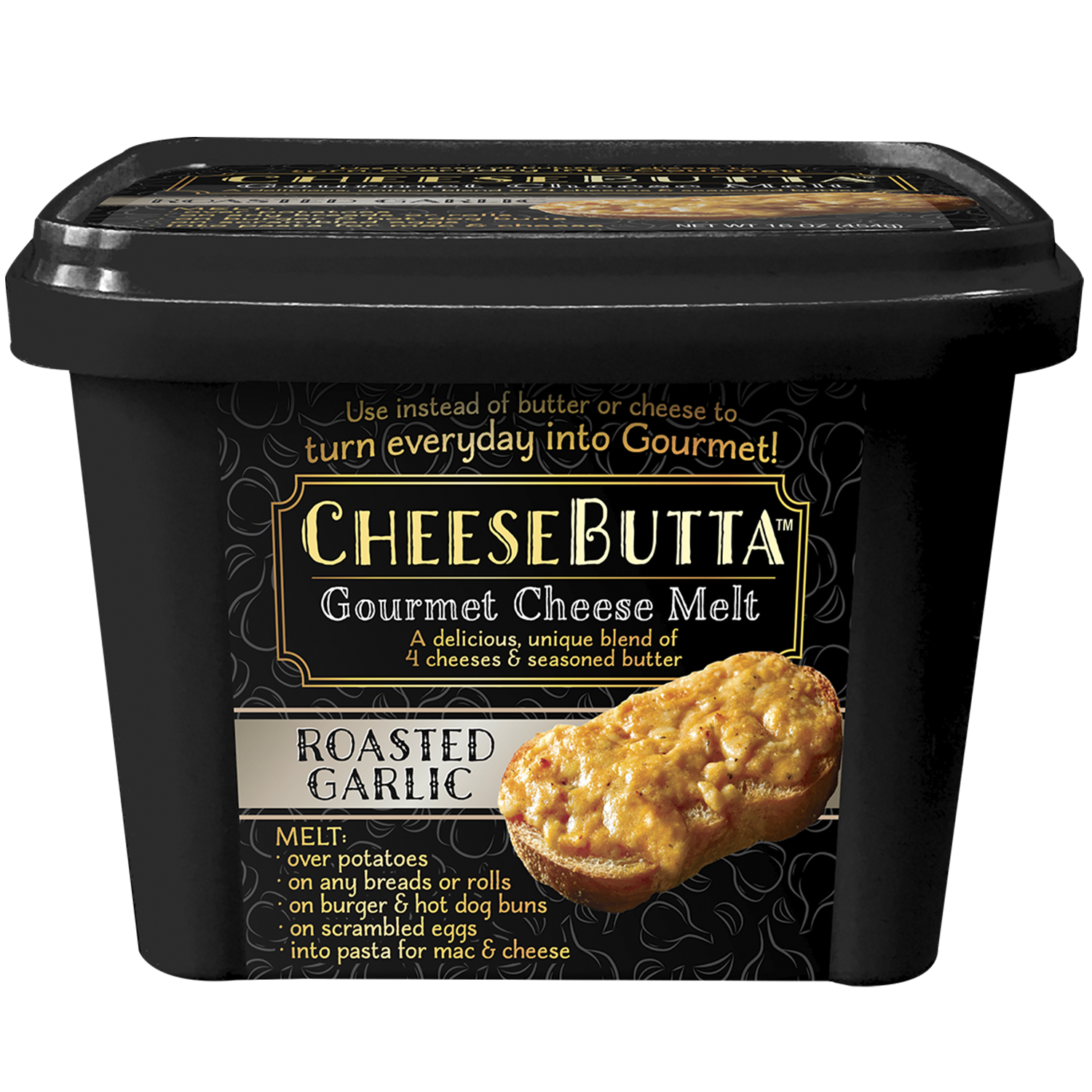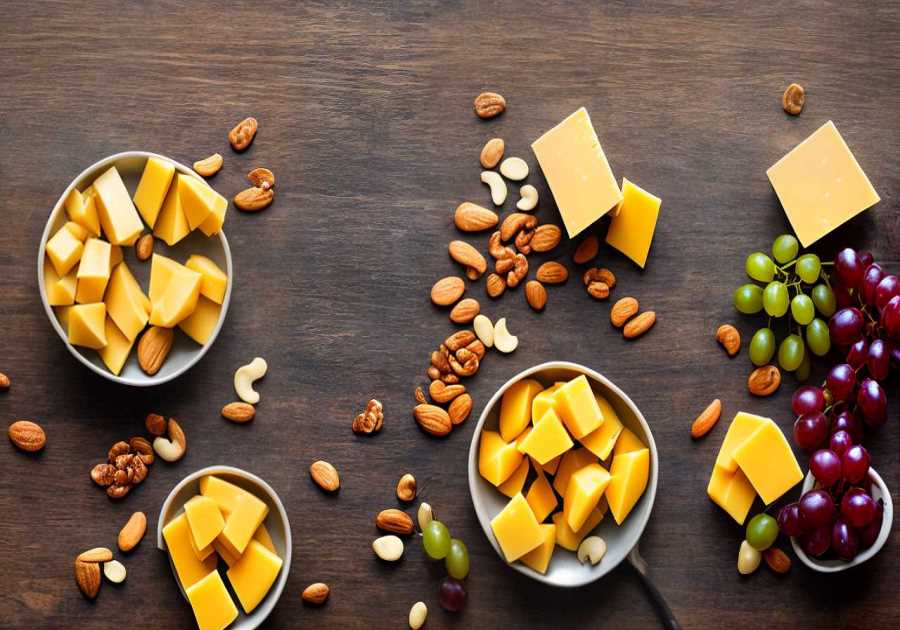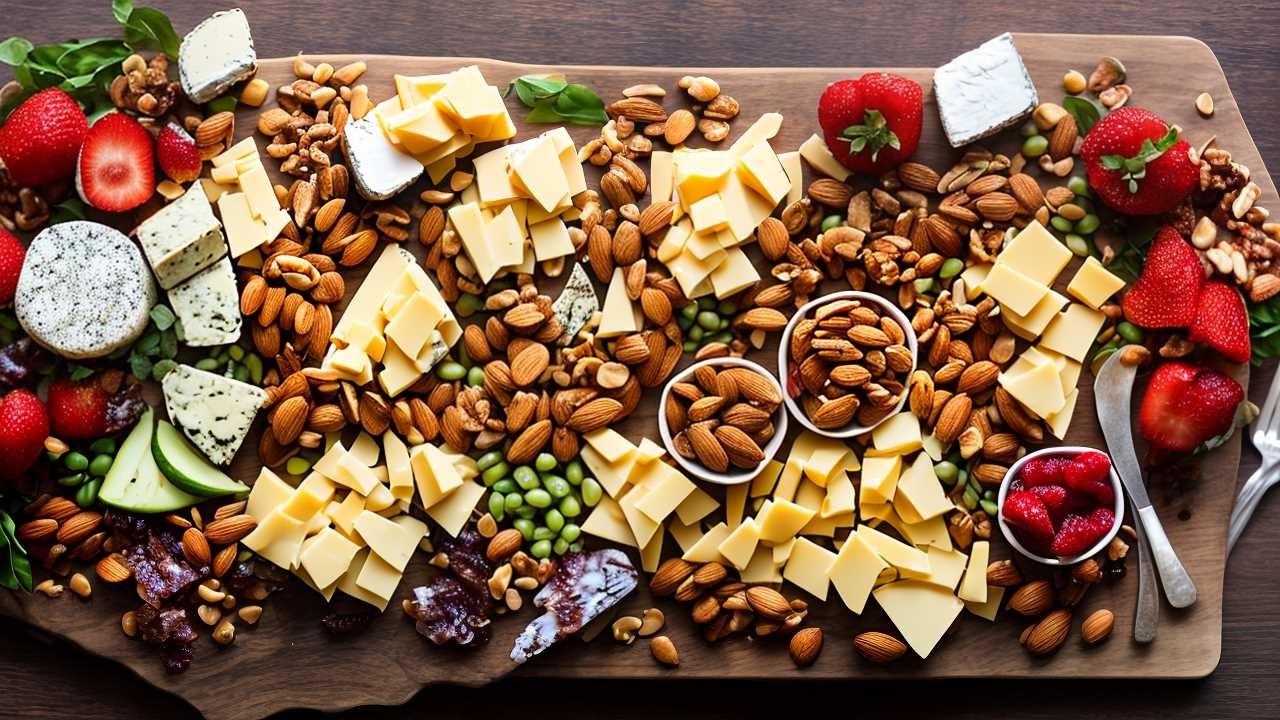
What Is the Best Cheese to Eat Daily?
If you're wondering about the best cheese to incorporate into your daily diet, you should consider cottage cheese. Its high protein content coupled with low fat makes it an excellent choice for weight management and muscle repair. Cottage cheese is also rich in essential nutrients like calcium and phosphorus, supporting your bone health effectively. It's versatile enough to blend into smoothies, top on salads, or even enjoy on its own. Adding it to your daily routine can boost your nutrient intake while keeping calorie consumption in check. Exploring different ways to include this cheese in your diet could open up even more health benefits.

Understanding Cheese Nutrition
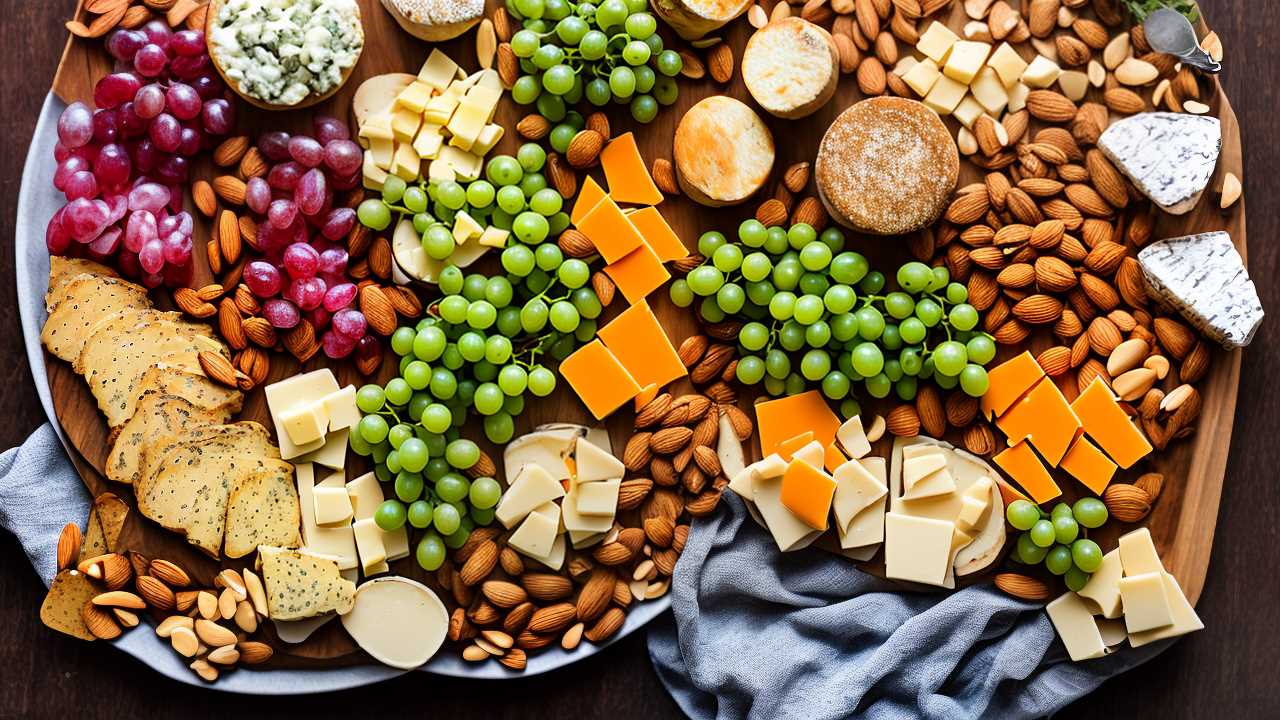
When exploring the nutritional landscape of cheese, it's crucial to recognize its valuable contributions to a balanced diet. You'll find that various cheese types offer diverse nutritional content, essential for maintaining good health. Let's delve into what makes cheese a noteworthy addition to your daily meals.
Cheese, in its many forms, provides high-quality protein, which is vital for muscle repair and growth. Whether you choose soft cheeses like ricotta or harder varieties like cheddar, you're consuming essential amino acids your body needs to function effectively.
Moreover, cheese is a fantastic source of calcium, crucial for bone health. A single slice of cheese can deliver a substantial amount of your daily calcium requirement.
Additionally, cheese contains other important nutrients such as phosphorus, zinc, vitamin A, and B vitamins. These nutrients support various body functions, including metabolism and vision. Phosphorus works with calcium to bolster bone strength, while B vitamins help convert food into energy.
Understanding the nutritional content of different cheese types can aid you in making informed choices. For instance, mozzarella is lower in fat and calories compared to creamier cheeses like brie or camembert. This makes mozzarella a better option for those monitoring their calorie intake.
On the other hand, Parmesan is rich in flavor and nutrients, which means a little goes a long way in enhancing your dishes while keeping portion sizes in check.
Additionally, certain cheeses contain probiotics that support gut health, adding another layer of benefit to their consumption. This is particularly true for aged cheeses, which aren't only flavorful but also packed with beneficial bacteria.

Health Benefits of Cheese
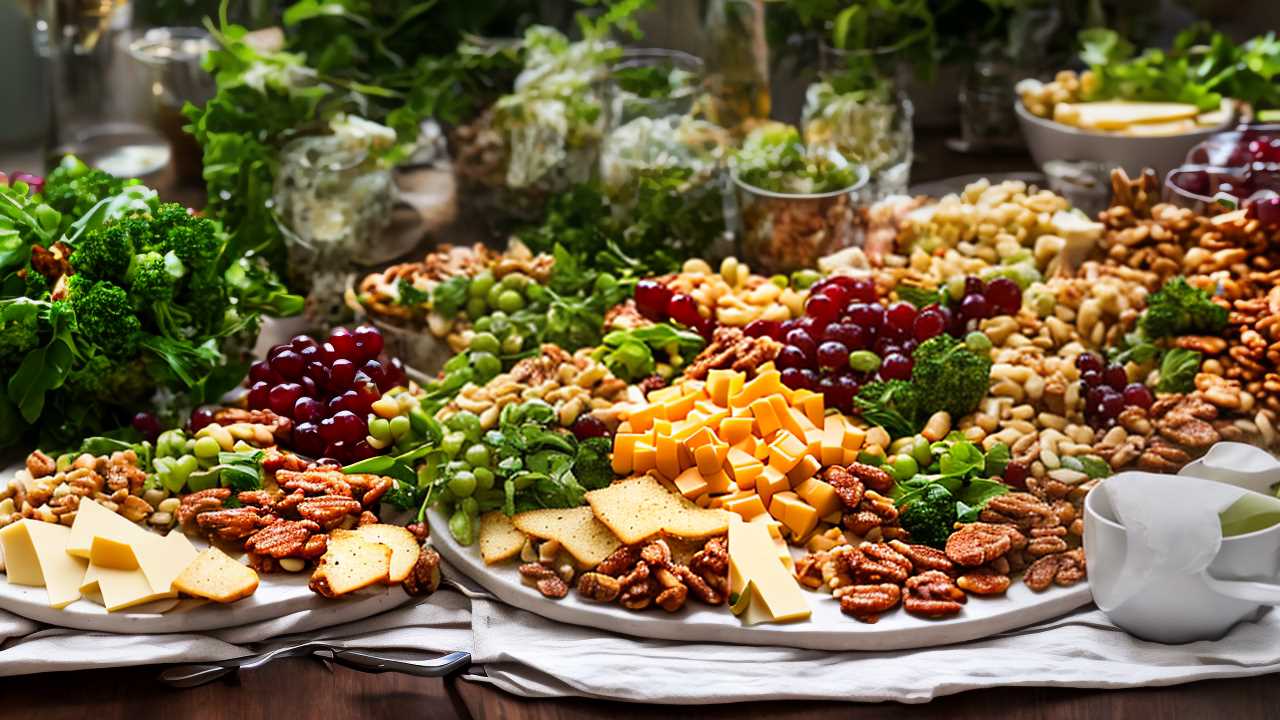
You may already appreciate cheese for its flavor, but it's also packed with health benefits that can significantly enhance your well-being. Various cheese varieties bring a diverse range of nutrients to the table, essential for maintaining a balanced diet. For instance, cheese is a fantastic source of calcium, crucial for strong bones and teeth. It also provides high-quality proteins, vital for muscle repair and growth.
Additionally, cheese contains a wealth of vitamins and minerals, including vitamin B12, which supports nerve function and the production of DNA. Zinc, found in many cheeses, is critical for immunity and skin health.
Despite common health myths, when consumed in moderation, cheese can be part of a heart-healthy diet. It's rich in conjugated linoleic acid (CLA), which studies suggest may help reduce body fat and improve cardiovascular health.
Moreover, the beneficial probiotics in cheese support gut health, promoting better digestion and potentially boosting the immune system. This makes it an excellent dietary choice for those looking to maintain a healthy and balanced gut microbiome.
However, it's important to choose wisely. Opt for low-sodium and reduced-fat options to maximize benefits and minimize potential health risks, such as high cholesterol or hypertension.
For those who are lactose intolerant, there are numerous lactose-free cheeses available that offer the same nutritional benefits without the discomfort.

Top 5 Daily Cheeses

Let's explore the top five cheeses that you can enjoy daily, each selected for their health benefits and nutritional value. When choosing cheese varieties for daily consumption, it's crucial to consider both their nutritional content and how they fit into a balanced diet.
First on the list is cottage cheese, known for its high protein and low-fat profile. It's an excellent choice for muscle repair and supports weight management. You can incorporate it into breakfast or use it as a healthy snack.
Next is mozzarella, particularly the part-skim variety. It's lower in fat and calories compared to many other cheeses, and it provides a good amount of calcium and protein. Mozzarella is versatile and pairs well with fruits and salads, enhancing your meals with a mild, creamy texture.
Feta cheese, often associated with Mediterranean diets, stands out due to its rich blend of vitamins and minerals, including calcium and phosphorus. Its tangy flavor enriches salads and grilled vegetables without overpowering other tastes. Given its profile, feta could easily be one of those gourmet products that brings a touch of culinary artistry to everyday meals.
Fourth, consider Swiss cheese. It's particularly noted for its lower sodium content, which makes it a healthier option for those monitoring their salt intake. Swiss cheese also offers a good source of protein and calcium.
Lastly, ricotta is an excellent choice for its versatility and health benefits. It's typically lower in sodium and fat while being a good source of protein and calcium. Ricotta works beautifully in both savory dishes and desserts.
Including these cheeses in your diet can help you meet your nutritional needs while enjoying a variety of tasty meals.

Managing Cheese Portion Sizes

Understanding how to properly manage cheese portion sizes can significantly enhance the health benefits discussed earlier. When you're planning to include cheese in your daily diet, it's crucial to think about portion control. This not only helps in maintaining a healthy weight but also ensures that you're not overloading on saturated fats and sodium, which cheeses can often contain in high amounts.
A standard cheese serving is about one ounce. This looks like a small cube that could fit in the palm of your hand. For softer cheeses, such as Brie or goat cheese, sticking to a tablespoon as a serving size can help keep your intake in check.
Remember, cheese is dense in nutrients and calories, which means a little goes a long way toward fulfilling your dietary needs, including calcium and protein.
To effectively manage your cheese servings, consider using a kitchen scale or pre-portioned slices to keep your portions accurate and consistent. This is particularly helpful if you're serving others, ensuring everyone enjoys their meal without overindulgence.
Additionally, if you're incorporating cheese into recipes, measure it out based on the number of servings the recipe yields, rather than adding cheese by eye.
Incorporating these portion control strategies won't only help you maintain a balanced diet but will also enhance your ability to serve nutritious and satisfying meals to others. By being mindful of cheese servings, you're taking an important step in managing your overall health and that of those you care for.

Pairing Cheese With Other Foods
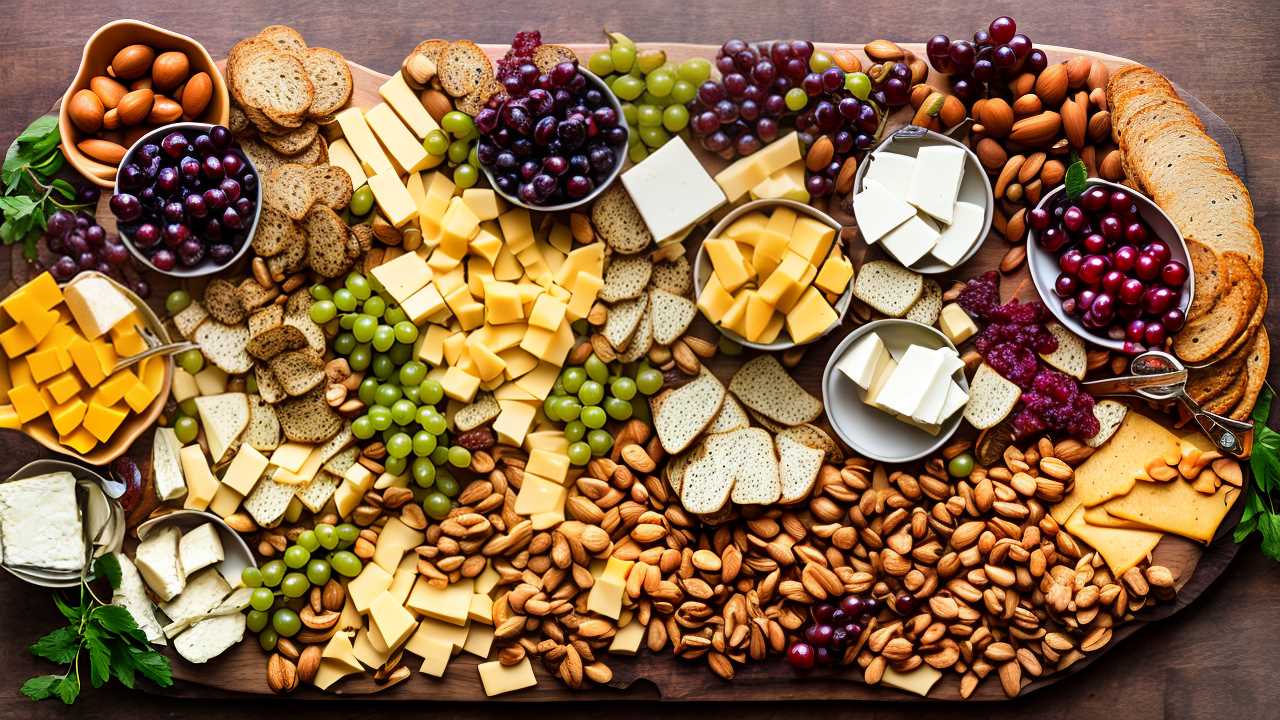
Pairing cheese with other foods can significantly enhance both the flavor profiles and nutritional value of your meals. When you're trying to serve a balanced diet, understanding which cheese varieties best complement other nutrients can make a world of difference.
For instance, a sharp cheddar pairs beautifully with apple slices, providing a satisfying mix of protein, calcium, and fiber that helps keep you full longer and supports digestion.
Consider combining feta cheese with a salad of leafy greens like spinach or kale. The saltiness of the feta contrasts well with the bitterness of the greens, and the combination delivers a powerhouse of vitamins A and C, along with iron and calcium. This not only boosts your immune system but also aids in bone health.
When serving a meal to others, incorporating mozzarella in a tomato and basil dish offers a classic flavor profile that's hard to resist. This pairing isn't just delicious; it's also packed with antioxidants from the tomatoes and healthy fats from the cheese, promoting heart health and skin vitality.
For a snack that appeals to both taste and health, try pairing blue cheese with pears or walnuts. This combination provides a delightful balance of sweet and savory flavors while offering a good source of protein, healthy fats, and essential minerals.
This kind of thoughtful pairing can elevate a simple snack into a nutrient-rich treat that supports overall well-being.

Frequently Asked Questions
Can Cheese Cause Allergies or Intolerances?
Yes, cheese can definitely trigger allergies or intolerances. You might experience cheese allergies due to proteins like casein, or you could suffer from lactose intolerance, which is an inability to digest the sugar in milk properly.
It's essential to identify your specific sensitivity, as this can significantly impact your health. Consulting with a healthcare provider can help you navigate these issues and choose dietary options that respect your body's needs.
How Does Cheese Production Impact the Environment?
Cheese production significantly affects the environment, from greenhouse gas emissions to water usage. As you explore these impacts, you'll find that every cheese wheel leaves a footprint.
Opting for cheeses from local, sustainable farms can mitigate some environmental effects. Look for producers committed to eco-friendly practices, as these choices contribute positively to the planet's health.
Are There Vegan Alternatives Similar to Daily Cheeses?
Yes, there are vegan alternatives that mimic the nutritional benefits and flavor profiles of daily cheeses.
You'll find options like cashew cheese and almond cheese, which provide healthy fats and are often fortified with vitamins.
They vary in taste and texture, so you might need to experiment to find one you enjoy.
These plant-based choices are great for maintaining a balanced diet while catering to your health and the well-being of others.
Can Cheese Consumption Affect Pregnancy?
Absolutely, cheese can be a game-changer during pregnancy!
It's packed with nutritional benefits that support both you and your baby. However, you should opt for pasteurized varieties to sidestep any health risks.
These cheeses can satisfy those intense pregnancy cravings while providing essential nutrients like calcium and protein.
Always check with your healthcare provider to tailor the best cheese choices for your specific dietary needs, ensuring you serve your body and baby optimally.
How Is Cheese Storage Safety Managed at Home?
To safely store cheese at home, you should keep it at the right temperature and ensure proper packaging.
Store cheese in your fridge, ideally between 35°F and 40°F. Use the original packaging or wrap it in parchment paper, then seal it in an airtight container.
This protects the cheese from bacteria and prevents it from absorbing other flavors while maintaining its nutritional quality.
Proper storage maximizes health benefits and safety, serving your family's needs effectively.

Conclusion
As you explore daily cheese options, remember moderation is key. Opting for cheeses like mozzarella or cottage cheese, which are lower in fat and calories, can be a healthy choice. Interestingly, studies show that consuming 40 grams of cheese daily may reduce the risk of heart disease by 14%. So, pair your favorite cheeses with fruits or whole grains to boost their nutritional value, making your cheese indulgence not only delicious but also beneficial for your overall health.

